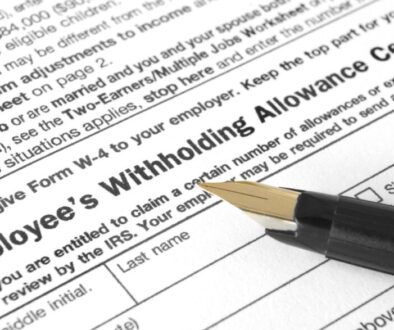First-Time Homebuyer Tax Credit: 4 Things You Need to Know
First-Time Homebuyer Tax Credit
Purchasing a home is an expensive process, but there are programs available to lessen the financial burden for first-time homebuyers. There have been several versions of the first-time homebuyer tax credit over time, with the first version in 2008 and while that program is no longer operating, there is currently a bill in 2022 that if passed will offer tax relief for first-time homebuyers again.
Is the 2008 first-time homebuyer tax credit still available?
No, the 2008 Housing and Economic Recovery Act (HERA), which provided a tax credit of $7,500 to first-time homebuyers in 2008 and $8,000 in 2009, is no longer available. This program ended in 2009.
However, there is currently (as of 2022) a bill in process that if it were to become law, would provide a tax credit for first-time homebuyers.
Who qualifies as a first-time homebuyer?
To be a first-time homebuyer, you must not have owned a home or been a cosigner on a mortgage in the previous three years. If you’re not sure if you’ve claimed this credit before, the IRS has a tool on their website where you can look up this information.
There are additional requirements on the proposed first-time homebuyer tax credit. If you meet any of these requirements, you may qualify for the credit:
- If you’re a single parent who only co-owned a property with a former spouse while you were married
- If you are a displaced homemaker who only ever owned a home previously with a spouse
To use the first-time homebuyer tax credit, you must be over the age of 18. You must also be using the credit for the first time and purchasing the home from someone that you aren’t related to. There are some restrictions on your income level: your income can’t exceed 60% above the median income for the area where you’re purchasing the home. (Note: until this bill becomes a law, the restrictions and terms may be subject to change)
How much is the first-time homebuyer tax credit worth?
The proposed First-Time Homebuyer Act of 2021 would offer a tax credit of 10% of your home’s purchase price not to exceed $15,000 (in 2021). This amount increases each year and is inflation adjusted (a maximum of $15,300 in 2022; $15,606 in 2023 and so on). Tax credits would be applied directly to your tax bill or as a refund, depending on your tax situation.
If you move within the first four years of home ownership, you will be responsible for repaying back some of the credit, depending on how far you are into the home ownership. For example:
- If you sell your home or move within the first year, you’d repay 100% in taxes
- If you sell or move within the second year, you’d repay 75% in taxes
- If you sell or move within the third year, you’d repay 50% in taxes
- If you sell or move within the fourth year, you’d repay 25% in taxes
There is an exception that if you sell your home within those four years to a non-relative and have real estate gains that are less than your tax liability, you’d only pay back the real estate gains. There are additional exceptions for life events, such as death, divorce, etc.
Other Tax Credits For Home Buyers
For home buyers, there are other tax credits available, regardless of if it is your first time or not.
You can deduct the property taxes that you’ve paid each year, and the interest on your mortgage is also a deduction that you can take (if you itemize your deductions). Mortgage interest deductions are available for mortgages up to $750,000. All taxes (state, local, personal property, and real estate) are capped at $10k. You can also deduct your mortgage insurance premium as mortgage interest if you paid a down payment of less than 20% of your home’s value. Take this deduction on Schedule A found on form 1040. You may also be able to deduct your loan origination fees.
Want tax tips delivered to your inbox?




